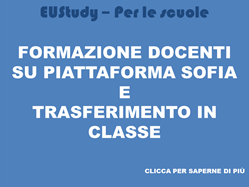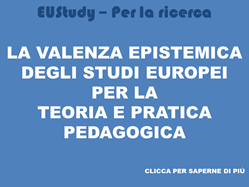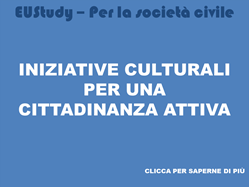
EUSTUDY – EUROPEAN CITIZENSHIP EDUCATION IN THEORY AND PRACTICE
In collaboration with:
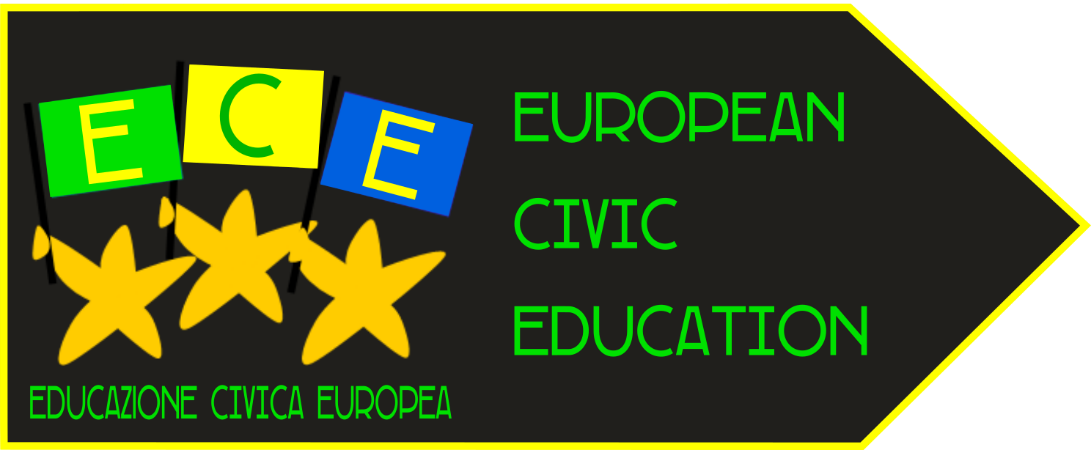
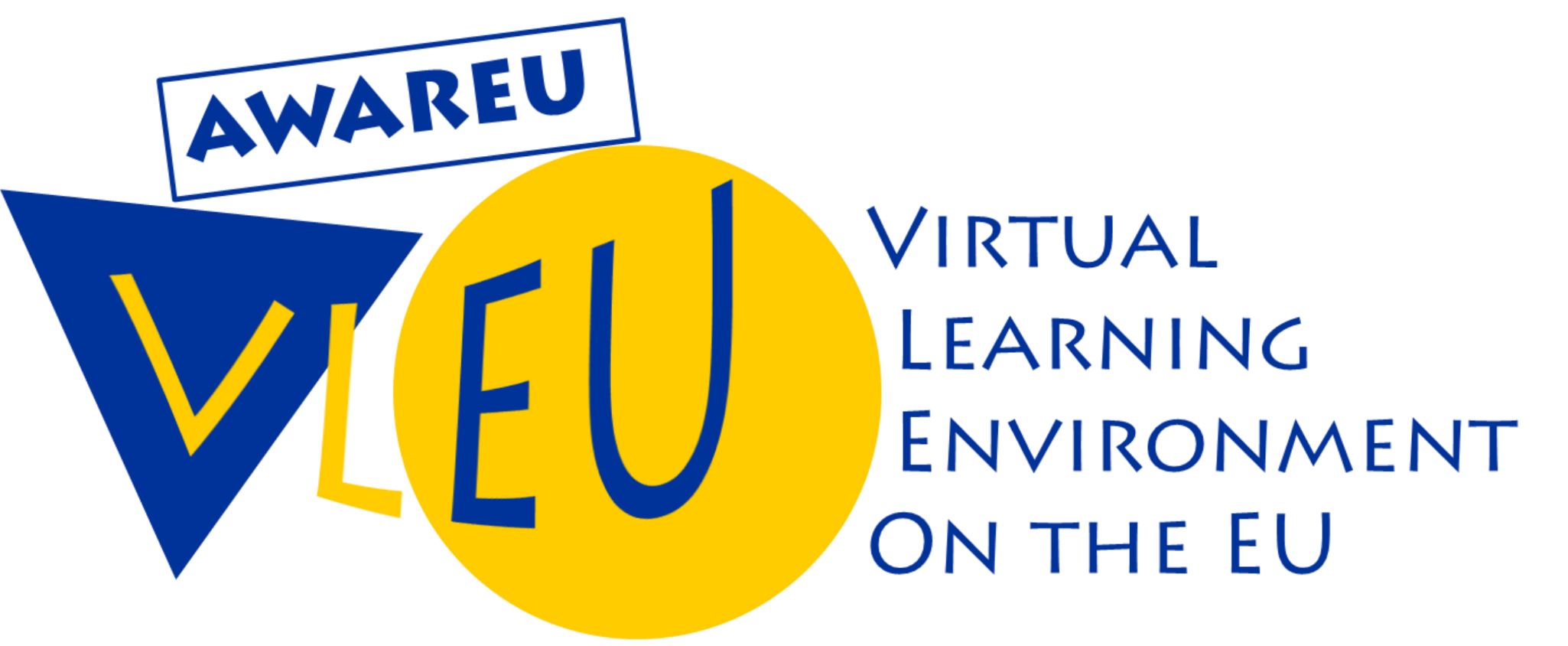
In 2019-2021, the eCampus Telematic University followed up on the experience of the Jean Monnet EUAct project (2016-2017) by winning a new Jean Monnet Projects call of the European Union with a project coordinated by Prof. Francesco Pigozzo, designed and implemented in collaboration with Dr. Daniela Martinelli in charge of the multilingual training platform Virtual Learning Environment on the EU (https://vleu.awareu.eu e https://spaesati.awareu.eu/).
If from the processes of globalisation derive a series of educational challenges typical of our time and recognised by the community and educational policies (interculturality, inclusion and valorisation of diversity, creativity, flexibility and autonomy, environmental education, etc.), from the contradiction between these processes and the exclusively or predominantly national forms of citizen participation derives an even greater and more decisive educational challenge, which remains almost completely ignored. ), from the contradiction between these processes and the exclusively or predominantly national forms of citizen participation derives an even greater and decisive educational challenge, which nevertheless remains almost completely ignored: so much so, that it still lacks a name (individual aspects of it are captured by the ideas of education to contradictions, ambiguities, conflict, dialectical education, multilevel citizenship, methodological pluralism...).
Obviously, in Europe there are partial exceptions to the attempts to give a European dimension to the education of citizens: the construction of the European Union, after all, is precisely the attempt to overcome the 'exclusive' paradigm of national identities and democracies. But the national ministries and the European Union are a long way from recognising in this a revolution in the pedagogical paradigm, and the Europe 'theme' is reduced to a cognitive content to be added notionally to the curriculum of first and second grade secondary schools.
EUStudy is a project that has explored this issue both from the specific point of view of a structured interdisciplinary research activity, linked to academic conferences and publications, and from the point of view of the 'third mission', namely the training of educators in the Italian school system, the university-school collaboration for specific classroom activities, the involvement of civil society and institutional actors through related cultural events that build on the musical recital "Europa: che Passione! Storia di un amore tormentato". The COVID-19 pandemic crisis from February 2020 naturally marked 12 of the project's 18-month duration, but it did not stop its activities or prevent it from achieving its intended results: EUStudy's activities directly involved some 2,500 direct beneficiaries, mainly teachers and students from schools of all levels in Italy (both first and second cycle, including pre-school) and its research results found their way into prestigious and highly visible venues of pedagogical debate, both academic ("Encyclopaideia") and professional and practical ("Scuola Italiana Moderna" and "Scuola e Didattica").
The activities envisaged by the project are schematically summarised in this presentationand on the appropriate pages to which the buttons below refer.
The eustudy@uniecampus.it address remains active beyond the life of the project, and its results and practical and research objectives will continue to feed into the development of the University's teaching, research and third mission in the field of European Citizenship Education and European Studies.







